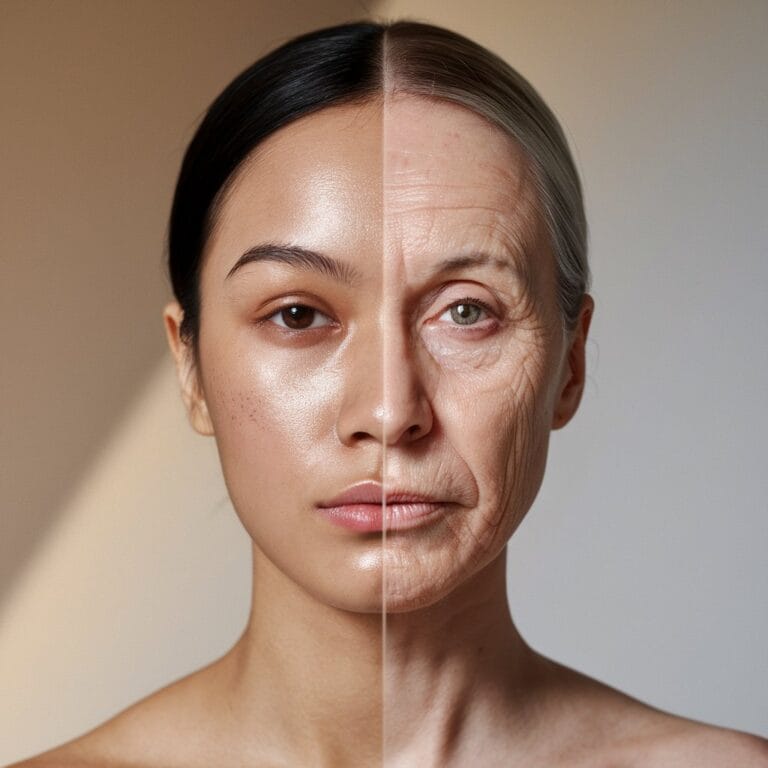FREE SHIPPING OVER $50
This Popular Snack Could Raise Your Cancer Risk by 50%—Here’s What You Need to Know
Many of us enjoy a quick snack throughout the day, whether it’s to curb hunger or satisfy a craving. But could one popular choice be silently putting your health at risk? Recent research suggests that certain processed snacks could be linked to a significant increase in cancer risk. In this article, we’ll dive into which snacks are associated with these risks, why they’re harmful, and healthier alternatives to consider.
Understanding the Link Between Processed Snacks and Cancer Risk

What Does the Research Say?
Recent studies have identified a connection between ultra-processed foods, like packaged snacks, and an increased cancer risk. A major 2022 study published in BMJ suggested that individuals who consume higher amounts of ultra-processed foods may have a 50% greater risk of developing certain cancers, including colorectal and breast cancer. This research points to chemicals used in processing, additives, and preservatives as contributing factors that may make these foods potentially carcinogenic.
- Nitrites and Nitrates: Common in processed meats and certain packaged snacks, these chemicals can form cancer-causing compounds known as nitrosamines when digested.
- Trans Fats: Found in snacks like chips and pastries, trans fats have been linked to an increased risk of heart disease and may also promote cancer cell growth.
- High Sugar and Salt Content: Excessive sugar and salt can disrupt bodily functions and create an inflammatory environment, which is linked to cancer development.
Why Does Snack Processing Matter?
Processed snacks undergo numerous changes to improve shelf life and taste, but these changes often involve adding potentially harmful ingredients. Ingredients like artificial colors, flavor enhancers, and high-fructose corn syrup are common in many packaged foods and snacks. These can lead to hormonal imbalances, inflammation, and oxidative stress—all of which are cancer risk factors.
Types of Snacks Most Commonly Associated with Cancer Risk
While not all snacks are equally harmful, some types tend to be higher in risk factors due to the ingredients and production methods involved.
1. Chips and Crackers
- Risks: Chips often contain acrylamide, a potentially carcinogenic compound that forms when starchy foods are fried or baked at high temperatures. Acrylamide exposure has been linked to various cancers, including ovarian and kidney cancers.
- Alternatives: Opt for whole-grain crackers or air-popped popcorn, which can satisfy your craving for crunch without the health risks.
2. Packaged Cookies and Pastries
- Risks: Packaged cookies are typically loaded with sugars, trans fats, and preservatives to maintain their flavor and texture. Trans fats, in particular, are linked to an increased risk of cancer and other chronic diseases.
- Alternatives: Consider baking your own treats using natural ingredients like oats and fruits, or choose options made with whole grains and natural sweeteners.
3. Processed Meats in Snack Packs
- Risks: Processed meats, including salami and pepperoni, are often included in convenient snack packs. However, these meats contain nitrates and nitrites, which are linked to an increased risk of stomach and colon cancer.
- Alternatives: Fresh, unprocessed meats or plant-based options can provide a healthier protein source without the preservatives.
How to Snack Safely: Healthier Alternatives
The good news is that there are plenty of snack options that can satisfy your cravings without compromising your health. Here are a few ideas:
- Fresh Fruits and Vegetables: Apples, carrots, and berries are excellent snack choices packed with fiber and antioxidants.
- Nuts and Seeds: Almonds, walnuts, and chia seeds offer a combination of healthy fats, protein, and minerals.
- Greek Yogurt with Fruit: A great way to satisfy your sweet tooth, Greek yogurt provides probiotics and protein.
- Hummus and Veggies: A filling snack that’s also high in fiber, hummus is a great choice when paired with sliced vegetables like bell peppers and cucumbers.
When to Be Cautious: Reading Labels and Identifying Red Flags
If you’re reaching for packaged snacks, taking a moment to check the label can help you avoid the most problematic ingredients. Here’s what to watch for:
- Artificial Colors and Flavors: These have been linked to various health risks, including allergic reactions and hyperactivity in children.
- High-Fructose Corn Syrup: A sugar substitute that can lead to obesity and inflammation, both of which are linked to cancer.
- Trans Fats: Look out for terms like “partially hydrogenated oils” to identify trans fats, which are linked to a higher risk of cardiovascular disease and possibly cancer.
The Role of Moderation in Your Snacking Habits
It’s important to remember that, while occasional indulgence is unlikely to significantly impact your health, regular consumption of ultra-processed snacks can accumulate risks over time. Moderation is key—pairing a healthy diet rich in whole foods with occasional treats can help reduce the likelihood of negative health outcomes.
By balancing healthier choices with occasional indulgences, you can enjoy snacks without putting your health at unnecessary risk.
Additional Tips for a Cancer-Preventive Diet
Incorporating cancer-preventive foods into your daily diet can also help lower overall risk. Try adding more of the following foods to your meals:
- Leafy Greens: Spinach, kale, and other greens are full of antioxidants and cancer-fighting compounds.
- Berries: Blueberries, strawberries, and raspberries contain polyphenols, which may help prevent cancer cell growth.
- Whole Grains: Foods like oats, brown rice, and barley offer fiber, which promotes a healthy gut.
- Green Tea: High in antioxidants, green tea has been linked to various health benefits, including cancer prevention.
Final Thoughts
Being mindful of your snacking choices can significantly influence your long-term health. While processed snacks are convenient, they often come with hidden risks that are worth considering. Opting for whole foods, reading labels, and choosing snacks with fewer additives are all simple steps that can make a big difference in your diet. By making these choices now, you’re investing in a healthier, cancer-preventive lifestyle that benefits you over the long haul.







